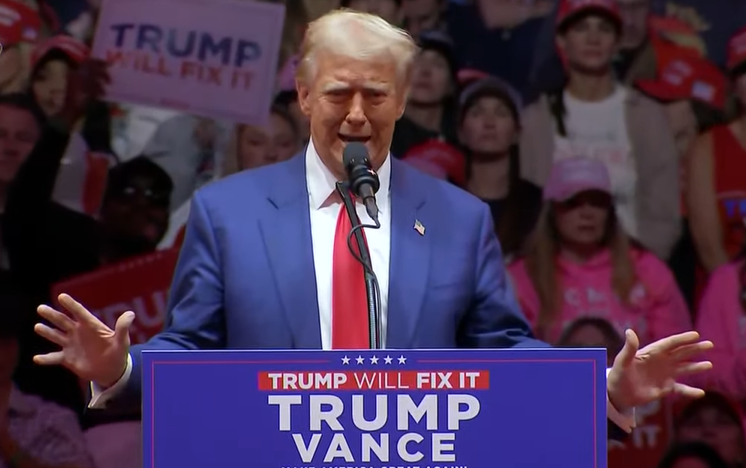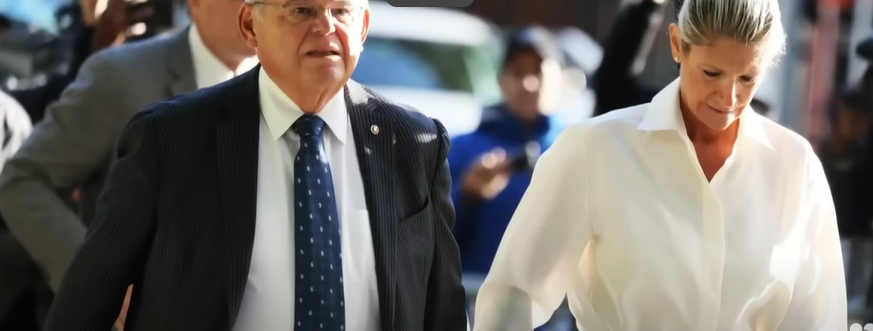
“As President Trump reaches his first 50 days in office, his approval rating has declined from 49%-41% to 47%-45%, reflecting a nation deeply divided,” Spencer Kimball, executive director of Emerson College Polling, said. “Despite not yet delivering on the economy in voters’ minds, Trump’s support remains steady. However, the true challenge will be how voters perceive their financial future. While little has shifted since the election, the initial ‘honeymoon phase’ seems to be coming to an end.”
“Voters are most supportive of Trump’s immigration policy, but they disapprove of his handling of the economy, believe tariffs will hurt economic growth, and are skeptical of his cryptocurrency policy,” Kimball continued.
A slight majority (51%) think Trump’s second term in office has been more of a success than a failure, and 49% think his term has been more of a failure.
Trump’s approval is strongest on his handling of immigration policy, 48% approve of his handling and 40% disapprove, and his disapproval is highest on the US economy, at 48% disapprove and 37% approve.
Thirty-nine percent of voters think Trump is doing better than expected in his second term, 36% think he is doing worse in office than expected, and 25% think he is doing about as expected.
- Among those who voted for Trump, 75% think he is doing better than expected, 18% about as expected, and 7% worse than expected. Among those who voted for Harris, 67% say Trump is doing worse than expected, 27% about as expected, and 5% better than expected.
A plurality of voters (46%) say Trump’s economic policies are making the economy worse, while 28% think they are making the economy better, and 26% think they have had no effect or it is too soon to tell.
Fifty-three percent think the US increasing tariffs will hurt the US economy, while 37% think they will help the economy, and 11% think they will have no impact.
Compared to a year ago, 39% say they and their family finances are worse off, 37% say they are about the same, and 24% say they are better off than a year ago.
“Black voters are most likely to report being worse off financially than a year ago, at 52%, compared to 40% of Hispanic voters and 38% of white voters who say the same,” Kimball noted.
Thirty-nine percent of voters have a favorable view of the Republican Party, while 49% have an unfavorable view of the party. The Democratic Party is ten points less favorable at 29%, and 56% have an unfavorable view of the party.
“The Republican Party holds a narrow favorability edge over Democrats, with 39% viewing it favorably compared to just 29% for the Democratic Party,” Kimball noted. “A concern for Democrats is their standing among Hispanic voters—who view the Republican Party slightly more favorably (29%-58%) than the Democratic Party (26%-58%). This signals a potential shift in a key voting bloc that Democrats have traditionally relied on.”
Vice President JD Vance has a 42% favorable rating, and a 46% unfavorable rating. Elon Musk holds a 42% job approval rating at the Department of Government Efficiency, and 48% job disapproval.
US Congress is viewed favorably by 29%, while 47% have an unfavorable view of Congress. The Supreme Court has a 36% favorable rating, and 42% unfavorable.
The survey measured favorability of Trump cabinet members.
According to a recent Emerson poll, President Donald Trump’s approval ratings have seen a decline in recent months. The poll, conducted by the Emerson College Polling Society, found that only 39% of Americans approve of the job Trump is doing as president, while 55% disapprove.
This decline in approval ratings comes as no surprise to many political analysts, as Trump has faced numerous controversies and challenges during his time in office. From the ongoing investigation into Russian interference in the 2016 election to his controversial policies on immigration and trade, Trump has been a polarizing figure since taking office.
The Emerson poll also found that Trump’s approval ratings vary significantly among different demographics. While 83% of Republicans approve of Trump’s job performance, only 8% of Democrats and 33% of independents feel the same way. Additionally, the poll found that Trump’s approval ratings are lower among women, minorities, and younger voters.
Despite the decline in his approval ratings, Trump remains a formidable candidate for re-election in 2020. His base of support among Republicans remains strong, and he has been able to deliver on some of his key campaign promises, such as tax reform and deregulation.
It will be interesting to see how Trump’s approval ratings evolve in the coming months as the 2020 election approaches. With a divided electorate and a volatile political climate, anything is possible. Stay tuned for more updates on Trump’s approval ratings and the latest developments in American politics.



